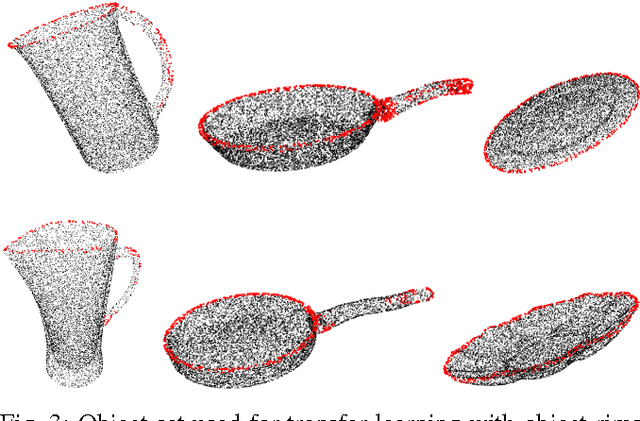Active and Transfer Learning of Grasps by Kernel Adaptive MCMC
Paper and Code
Nov 19, 2016



Human ability of both versatile grasping of given objects and grasping of novel (as of yet unseen) objects is truly remarkable. This probably arises from the experience infants gather by actively playing around with diverse objects. Moreover, knowledge acquired during this process is reused during learning of how to grasp novel objects. We conjecture that this combined process of active and transfer learning boils down to a random search around an object, suitably biased by prior experience, to identify promising grasps. In this paper we present an active learning method for learning of grasps for given objects, and a transfer learning method for learning of grasps for novel objects. Our learning methods apply a kernel adaptive Metropolis-Hastings sampler that learns an approximation of the grasps' probability density of an object while drawing grasp proposals from it. The sampler employs simulated annealing to search for globally-optimal grasps. Our empirical results show promising applicability of our proposed learning schemes.
 Add to Chrome
Add to Chrome Add to Firefox
Add to Firefox Add to Edge
Add to Edge